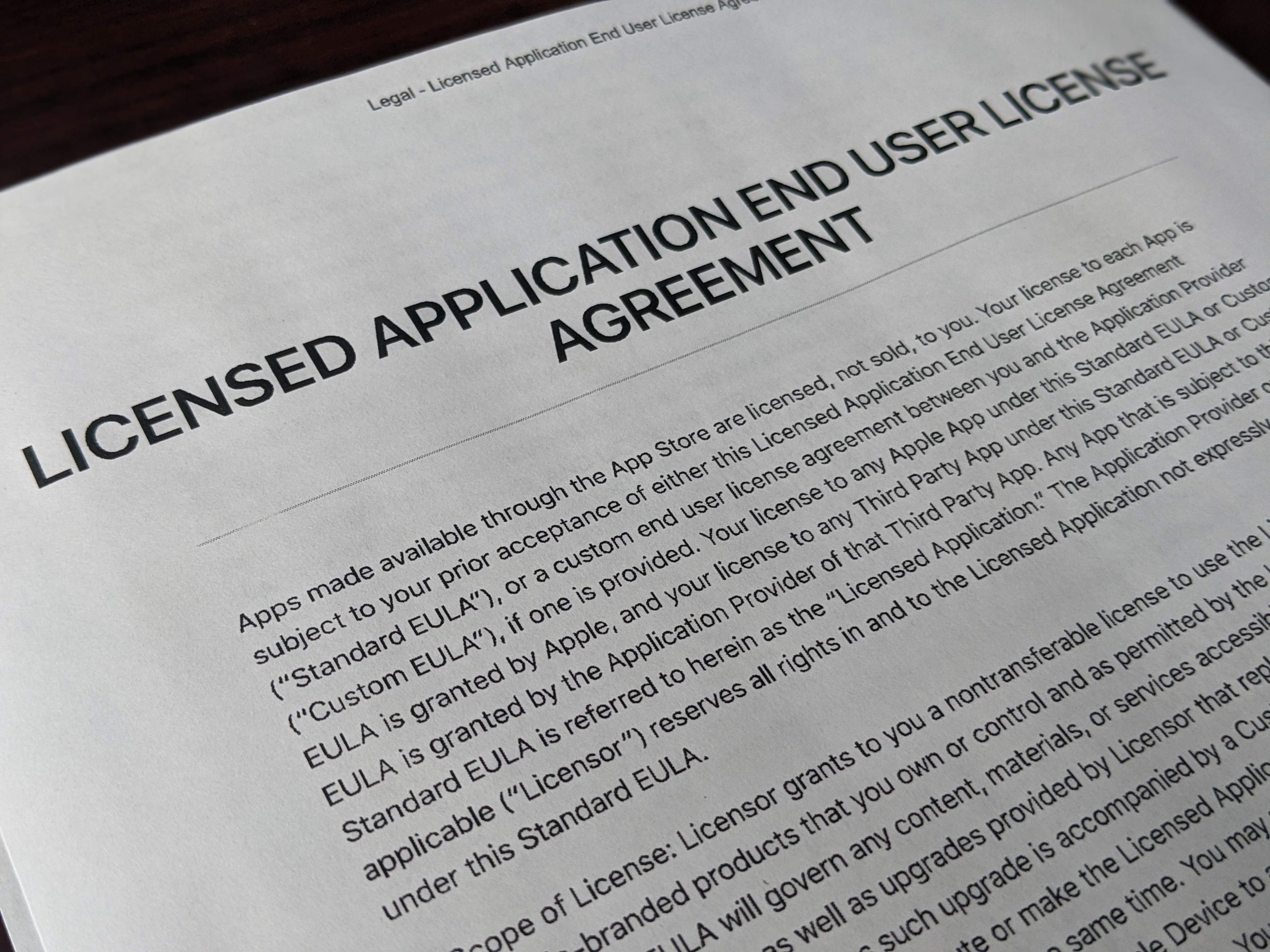EULA stands for End User License Agreement. At its core, it is simply a license agreement. However, it is has some slight differences.
License Agreement
We covered license agreements in another article. Put simply, a license agreement is the specific permission you have to use the software. It contains all the terms of the contract you have with the software owner. In addition to the license terms, it’ll likely contain cost, duration, and many other terms. That’s because it is a contract.
What is an End User?
And end user simply means you’re not reselling the product. A EULA typically cannot be transferred. Because you’re the end user, you also generally cannot share your login with others.
How is a EULA Different?
A EULA is just a specific type of license agreement. Generally, you click ‘I agree’ or a checkbox instead of a signature. The use of a EULA also indicates there are many users of the product. Additionally, you have no opportunity to negotiate the terms. Take it or leave it.
General Terms of a EULA
Aside from the usual terms found in any license agreement, a EULA regularly contains certain terms. For example, you’re likely going to submit to arbitration in the software company’s jurisdiction. You’re not going to be able to sue for special or punitive damages. Additionally, if the software harms your computer, it’s not their fault. Unfortunately, these agreements are typically one-sided. Equally as bad, hardly anyone reads them.
Things to Look For
There are some things you can glance through and look out for. This is not a complete list. If you have concerns about an agreement you’re signing, talk to a lawyer.
Ownership of Content. If the software you use allows you to upload or create content, make sure you keep the ownership of that content. A lot of sites take away many of your rights immediately when you upload something you created.
Conflict Resolution. If there is a conflict, you want to make sure the conflict resolution terms are fair. One piece of software once had required jurisdiction in Chile. I read this for a client and was shocked.
Costs. Are there any hidden costs? Be on the lookout for any of these.
Unbalanced Limitation of Liability. If they disclaim liability for everything under the sun, but they can sue you for an excessive amount, that’s not fair. It also suggests they’re not going to be fair if anything goes wrong. In all contracts, that’s a red flag for me.


Leave a Reply